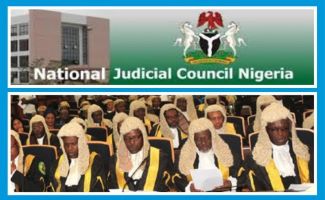By Ejimnkeonye Nnamani
Following the strange and shocking ascription of victory to the PDP and its candidate, Mr Peter Mbah, in the March 18, 2023, governorship election in Enugu State, the Labour Party and its candidate in the election, Hon. Chijioke Jonathan Edeoga, approached the Governorship Election Petition Tribunal in the state with a three – pronged grounds, challenging the curious victory ascribed to the PDP and its candidate, expecting that the law would take its course, and that justice would be evenly dispensed.
Yes, it was a curious victory for the PDP and its candidate in that a clear trajectory of victory had already been established for the Labour Party in the previous elections of the 25th February, 2023, where the party convincingly won two of the three Senatorial seats in the state, and seven of the state’s eight House of Representatives seats. The party also won the presidential election conducted on the same day with a very wide margin. The victory of the Labour Party was so overwhelming that it was very obvious that the party had become dominant in the political space of the state.
Expectedly, the Labour Party repeated the demonstration of its compelling presence and strong dominance of the political turf in Enugu State in the March 18, 2023 Gubernatorial and House of Assembly elections, winning fourteen of the twenty four seats in the House; and after the collation of results of the election in sixteen out of the state’s seventeen local government areas, Hon. Chijioke Jonathan Edeoga of the Labour Party was leading Mr Peter Mbah of the PDP with well over eleven thousand votes. However, when result of the election in the remaining local government area, Nkanu East where Mr Peter Mbah came from, was turned in, the unimaginable happened.
Over thirty thousand votes were recorded for Mr Peter Mbah in his Nkanu East local government area alone whereas available record from the BVAS machine showed that only about fifteen thousand voters were accredited to vote in the election in the whole of that area. The obviously fictitious result triggered protestations from the Labour Party, and further collation of results of the election was halted, with INEC summoning the state collation officer, together with the result, to its headquarters in Abuja.
After a couple of days, INEC realized that the BVAS machine was not used in accrediting voters and generating the result from Nkanu East. However, in flagrant disregard for the Electoral Act and its own Regulations and Guidelines that require the cancellation of such a result, INEC slashed the inaccurate result down to about sixteen thousand votes simply to give victory in the election to the PDP and its candidate. Reducing the purported result from Nkanu East from over thirty thousand votes to about sixteen thousand votes was a tacit admission by INEC that it was indeed fictitious.
In their petition against INEC’s declaration of Mr Peter Mbah as winner of the election, the Labour Party and its candidate raised three grounds, including Mr Mbah’s want of qualification to contest the election in the first place, having presented a forged NYSC discharge certificate to INEC in the run-up to the election in clear contravention of the express provisions of Section 182(1)(j) of the 1999 Constitution of the Federal Republic of Nigeria (as amended); and INEC’s failure to conduct the election in substantial compliance with the provisions of the Electoral Act, which substantially affected its outcome.
The allegation of want of qualification to contest an election on the ground that an aspirant or even a candidate in the election presented a forged certificate to INEC, as well as the method of proving the allegation is not a stranger in Nigeria’s electoral jurisprudence. Both the Supreme Court and the Court of Appeal have had occasions when such an issue was raised and it was resolved with clarity.
In the case of APC & Anor. vs. Obaseki & Ors (2021) LPELR – 55004(SC), the 1st respondent was alleged to have presented a forged degree certificate to INEC in his bid to contest the governorship election in Edo State, and thus not qualified to contest the election. In resolving the issue, the Supreme Court emphatically stated that, “To prove that the information in exhibit PL. 10 that 1st respondent obtained a degree certificate from University of Ibadan in 1979 is false would require evidence from the said University showing that he did not attend the said University or did not obtain the said degree in 1979 or at all.”
Similarly, the allegation of over – voting, and the method of its proof is not unknown to the electoral law in Nigeria. In the case of Oyetola & Anor vs. INEC & Ors (2023) LPELR – 60392 (SC), such allegation was raised, and the Supreme Court resolved it in these words, “It is glaring from the above reproduced provisions of the Electoral Act and the INEC Regulations and Guidelines that the evidence required to prove that voting was allowed without accreditation or that there was improper accreditation are the Register of Voters, BVAS and the Polling Unit result in Form EC8A and that the evidence required to prove that there was over voting are the record of accredited voters in the BVAS and the Polling Unit result in Form EC8A…
The apex Court went further to state that, “As it is, the appellants did not produce originals or certified true copies of INEC documents, to wit, BVAS machines or certificates of their records issued by INEC from the examination of the record of accredited voters in the BVAS machines, Register of Voters and Form EC8A for each of the 744 polling units that sufficiently disclose the non compliance they alleged in their petition.”
In proving their petition before the tribunal, the Labour Party and its candidate called subpoenaed witnesses from the NYSC and INEC. The witnesses orally testified and also tendered documents to show that the NYSC discharge certificate Mr Peter Mbah submitted to INEC did not originate from the issuing authority, and that there was over – voting and lack of substantial compliance with the provisions of the Electoral Act in the conduct of the election by INEC.
However the tribunal threw overboard the all important and relevant evidence of the subpoenaed witnesses which would have decisively proved the petitioners’ allegations against Mr Peter Mbah and INEC on the very implausible premise that, “In the instant Petition, the PW1, PW2, PW3 and PW30 were subpoenaed at the instance of the petitioner while DW2 and DW3 were subpoenaed at the instance of the 2nd and 3rd Respondents respectively. Hence all the witnesses under subpoena were available to the parties at the time of filing the petition and replies thereto, it follows that the witness statements on oath filed after the time limited for doing so has expired are incompetent. Their testimonies embodied in their respective witness statement and/or oral evidence, documents admitted in evidence as Exhibits are hereby struck out.”
The conclusion of the tribunal that the subpoenaed witnesses from NYSC and INEC were available to the petitioners at the time of filing the petition is glaringly outrageous and entirely bereft of common sense. In the absence of collusion, how did the tribunal expect the petitioners to file the written statements on oath of the subpoenaed witnesses within 21 days after the declaration of results of the election as required by law?Remember, INEC was the 1st respondent in the petition, while the NYSC is a government agency that is completely outside the control of the petitioners. How could the petitioners have filed the statement on oath of an adverse party without subpoena?
The unbridled endorsement of the decision of the tribunal by the Court of Appeal was least expected. The tribunal did not expunge the evidence of the subpoenaed witnesses for not being vital and relevant in proving the issues in contention between the parties but for the fact that the statements on oath of the witnesses were purportedly filed out of time. The law does not allow a Court the latitude of expunging a vital and relevant piece of evidence simply because of the manner the evidence was obtained, even in election petitions. The law has always been that even an illegally obtained piece of relevant evidence is admissible.
In the case of AGAGU & Ors. vs. Mimiko & Ors. (2009) LPELR – 21149(CA), which was an election petition, on the application of the 5th respondent, the SSS was subpoenaed to produce its report before the tribunal.The witness sent by the SSS denied the existence of the report. However, the 5th respondent tendered the report. The appellants’ counsel urged the Court not to attach any weight to the report because the witness who was summoned to tender it, denied its existence.
In resolving the issue, the Court of Appeal pointedly declared that, “The submission of the learned senior counsel is adroit but not candid… The Supreme Court and indeed this Court have held on a number of cases that evidence relevant to a case is admissible, however obtained.” The Court also copiously quoted the decision of the Supreme Court in the case of Torti vs. Ukpabi ((1984) 1SCNLR 214, where Aniagolu, JSC, stated that, “Again as was held in Kuruma vs. The Queen (1955) AC 199 the test to be applied both in civil and in criminal cases, in considering whether evidence is admissible is whether it is relevant to the matters in issue. If it is, it is admissible and the Court is not concerned with how it was obtained.”
The decision of the tribunal to expunge the relevant evidence of the petitioners’ witnesses, which the Court of Appeal upheld is grossly illogical and defies every sense of justice. It is merely anchored on sheer technicality, which the Courts now disdain, and have thankfully pronounced in a litany of cases that the days of its application in the administration of justice in Nigeria are gone for the very reason that it defeats substantial justice. It is therefore, befuddling that the tribunal and the Court of Appeal chose to hide under the Practice Direction of the tribunal to refrain from doing substantial justice in the petition of the Labour Party and its candidate.
In the case of Stowe & Anor vs. Benstowe & Anor (2012) LPELR – 7838 (SC), the Supreme Court frowned at the application of the Rules of Court and the use of technicality to defeat substantial justice and stated that, “Although it is trite that the Rules of Court must be obeyed, it must not be lost to the Courts that they serve mainly as handmaids to Courts in dispensing justice in our adjudicative system. They should not therefore serve as stumbling blocks in the Courts way of doing substantial justice in a matter.”
In the more recent case of Akande vs. Jegede & Ors. (2022) LPELR – 58911(SC), the Supreme Court was frontally blunt in condemning the unguided application of the Rules of Court and the use of technicality in the administration of justice when it stated that, “The rules of Court, like the High Court of Lagos State (Civil Procedure) Rules 2004, are designed for the purpose of streamlining the procedure for attainment of justice before the Court. It thus must be obeyed. Howbeit, where strict adherence to the rule of Court is likely to occasion a miscarriage of justice or promote technicality, the Court is enjoined to depart from its applicability to doing substantial justice.”
In his concurring judgment in Akande’s case, Abdu Aboki, JSC, admirably stated that, “The Court has on several occasions insisted that Rules of procedure must be obeyed. But all the same, Rules should be helpful handmaids and not tyrannical and uncompromising masters. The general view, with which I am in complete agreement, is that it is undesirable to give effect to Rules which enable one party to score a technical victory at the expense of a hearing on the merits.”
The Court of Appeal’s affirmation of the decision of the tribunal to expunge the relevant evidence of the Labour Party and its candidate, which would have been helpful in proving their allegations that Mr Peter Mbah was not qualified to contest the election in the first place, and that INEC failed to conduct the election in substantial compliance with the provisions of the Electoral Act, 2022, simply amounts to enabling the PDP and its candidate, as well as INEC, to score a technical victory at the expense of a hearing of the petition on the merits. It is an affront to previous decisions of the Supreme Court against untrammeled application of the Rules of Court and the use of technicality to defeat substantial justice.
Allowing the decision of the Court of Appeal to stand and ultimately become a law in the electoral jurisprudence in Nigeria will undoubtedly lead to a reversal of the several years of gains over technicality in the administration of justice in the country. It will resultantly make election petitions in the country needless and unnecessary since proving the allegations in an election petition in the absence of subpoenaed witnesses would be a difficult task, if not outrightly impossible. In such a situation, extreme violence would be guaranteed in future elections in Nigeria, as desperate politicians would regard electoral contests as a do – or – die affair.The debilitating impact of having such a scenario on the nation’s democracy, economy and political stability is better imagined than experienced.
*Nnamani is a public affairs analyst and wrote in from Enugu



